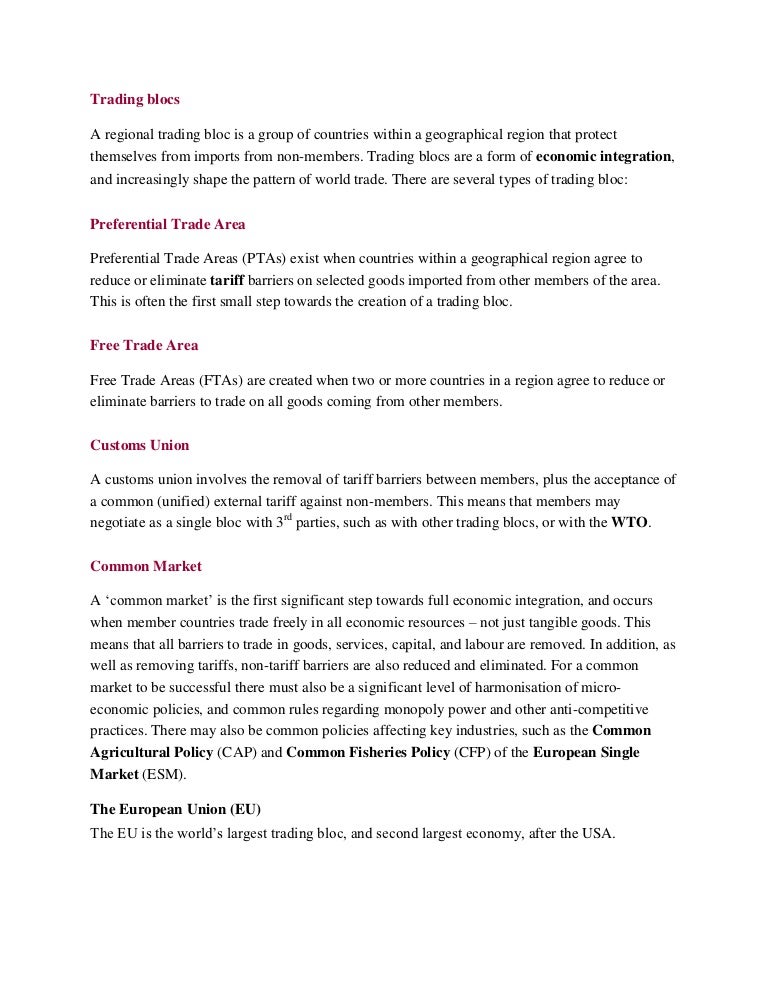
Trade specializations have always shaped the ways that countries, regions, and localities are integrated into the world economy.

International trade is a pillar of international order, and the multilateral trade system is overseen by the World Trade Organization (WTO) based in Geneva, Switzerland. Grant, in International Encyclopedia of Human Geography, 2009 The Agreement dictates that all measures must be scientifically based and not unnecessarily restrictive, while recognizing the right of countries to protect human, animal, or plant life or health. Its main intent is to facilitate trade and avoid the use of sanitary and phytosanitary measures as unjustified barriers to trade. The SPS Agreement has changed the way in which trade decisions related to agricultural products are made. Among the agreements that were included in the treaty that established the WTO, is the Agreement on the Application of Sanitary and Phytosanitary Measures (SPS Agreement), which sets out the basic rules for the protection of public, animal, and plant health during international trade ( WTO, 1995). This became known as ‘the GATT of 1994’ and led to the creation of the World Trade Organization (WTO) on 1 January 1995 ( WTO, 2013).


The Uruguay Round of Multilateral Trade Negotiations of the General Agreement on Tariffs and Trade (GATT) concluded in 1994, after 7.5 years of negotiations, with the signature of the Final Act, in Marrakesh, Morocco on 15 April 1994. Zepeda, in Encyclopedia of Agriculture and Food Systems, 2014 The Agreement on the Application of Sanitary and Phytosanitary Measures


 0 kommentar(er)
0 kommentar(er)
